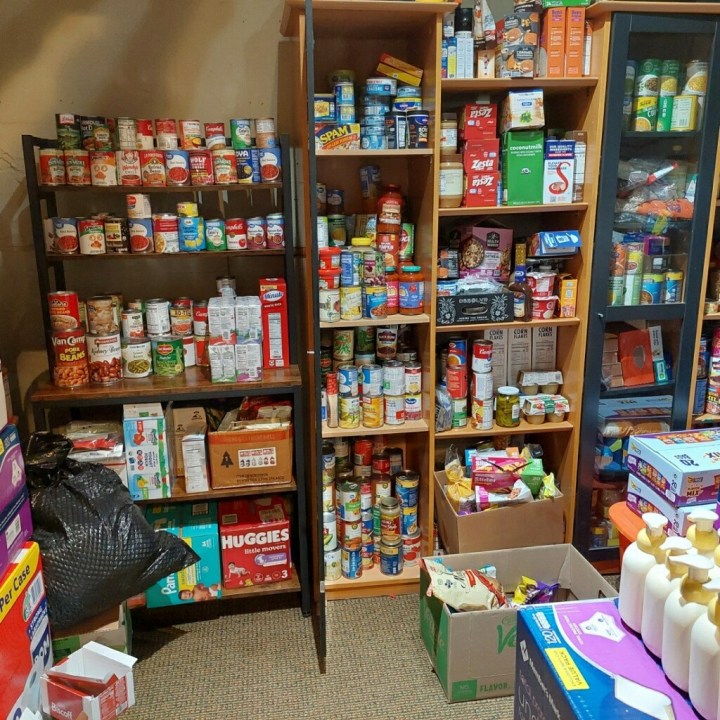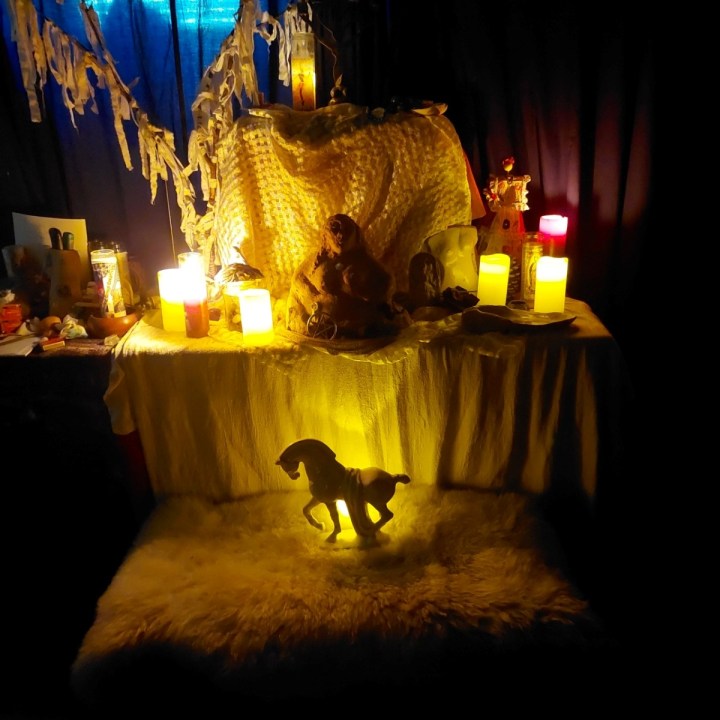(NewsNation) — Following Hurricane Helene, many community groups in western North Carolina jumped into action to help, including those who are part of one of the largest pagan communities in the Southeast.
After Helene left a trail of devastation in western North Carolina, many community groups and religious organizations began stepping up to help those affected by the storm that left thousands in the region without power or water, with many homes and businesses destroyed by flooding.
Those groups include those from minority faiths, among them the pagan community that has developed in the middle of the Bible Belt. Living in one of the largest pagan communities in the South, local leaders said they are working to help those in their religious community who may not be comfortable seeking aid from other faith groups.
What are pagans?
Ballard is the senior priestess at Mother Grove Goddess Temple, a nondenominational pagan temple in Asheville. She estimates the pagan community numbers at least a thousand self-identified pagans, including Wiccans, druids and other traditions.
But she says there are likely more who don’t identify as such, noting that “pagan” comes from Latin, meaning “country-dweller,” and that as a practice, it is a spirituality rooted in the cycle of the seasons.
“There are the people who will say, ‘I don’t really go to church, but on Sunday afternoon, I go hiking up in the mountains, and that’s where I really feel God,'” she said. “Well, [they] probably are technically a pagan.”
Modern neopaganism is defined by Earth-based spiritual work, typically honoring multiple deities, including goddesses, and follows a cycle of holidays based on the changing seasons. It encompasses numerous traditions, including Wicca, druidism, heathenry and folk magic, among others.
Ballard notes the area’s pagan community has been visible and growing since the mid-1990s, which helped when Helene hit because there was already an infrastructure and community connections in place.
Pagan groups helping hurricane victims
Jeff Fager is a council member of Coven of the Blue Moon and on the board of the Blue Ridge Pagan Festival.
Fager lives in Swannanoa, North Carolina, and his family lost most of their belongings in the flooding. Still, he says his first priority in the disaster was community relief.
For Fager, community relief means the pagan community but also western North Carolina at large. As a member of the Correllian tradition of Wicca, he said the role of clergy in that tradition is to serve the community.
“One of the more important aspects is having the general population seeing pagans out in the community providing relief and assistance to people so they can perhaps see us in a different light,” he said. “We’re not evil or different than anyone else.”
At Mother Grove, the initial plan was to collect donations and contribute them to larger organizations that were setting up relief efforts, such as BeLoved Asheville, a community-based group dedicated to helping underserved populations.
But then the temple, which operates a small chapel space in Asheville’s downtown, began getting calls from people in outlying communities that were hit even harder.
So members began collecting supplies like food and water, augmenting what was already in the temple’s long-running food pantry, and began loading up cars and heading to small towns, hoping they would be able to get through on damaged roads.
One of the first trips was to Barnardsville, located in north Buncombe County, just a few days after the storm. Ballard said they found relief efforts set up by members of the local anarchist, Burning Man and primitive skills communities had already set up a system to collect and deliver supplies, take reports and search for missing people.
From there, Ballard said the temple became a hub for the collection and distribution of supplies to mountain communities along with elder facilities and public housing complexes in Asheville, whose residents were largely unable to leave and get supplies with public transport not running.
Pagans in the community
Both Ballard and Fager note the effort is important, not just because of their faith or because it helps combat stereotypes about pagans by being visible in the community, but because some people may feel wary of approaching other religious organizations.
Ballard noted that people may be afraid of the questions they’ll be asked by volunteers with religious groups, especially in the Bible Belt, where conversations about church and faith are frequently a part of casual conversation.
‘”There are people who are reluctant to go and get help because they don’t want to have the embarrassment of somebody saying, ‘Well, where’s your church home? Have you been saved, and do you know Jesus?'” Ballard said.
Fager said people may be afraid that if workers come into their houses and see evidence of pagan beliefs, they will not be helped. His goal is to provide help not to pagans but to those of all faiths.
“We’re here to provide relief to everyone: Christian, pagan, Muslim, Hindu, Jewish, whatever,” he said. “We’re just here to provide relief to the mountains.”






